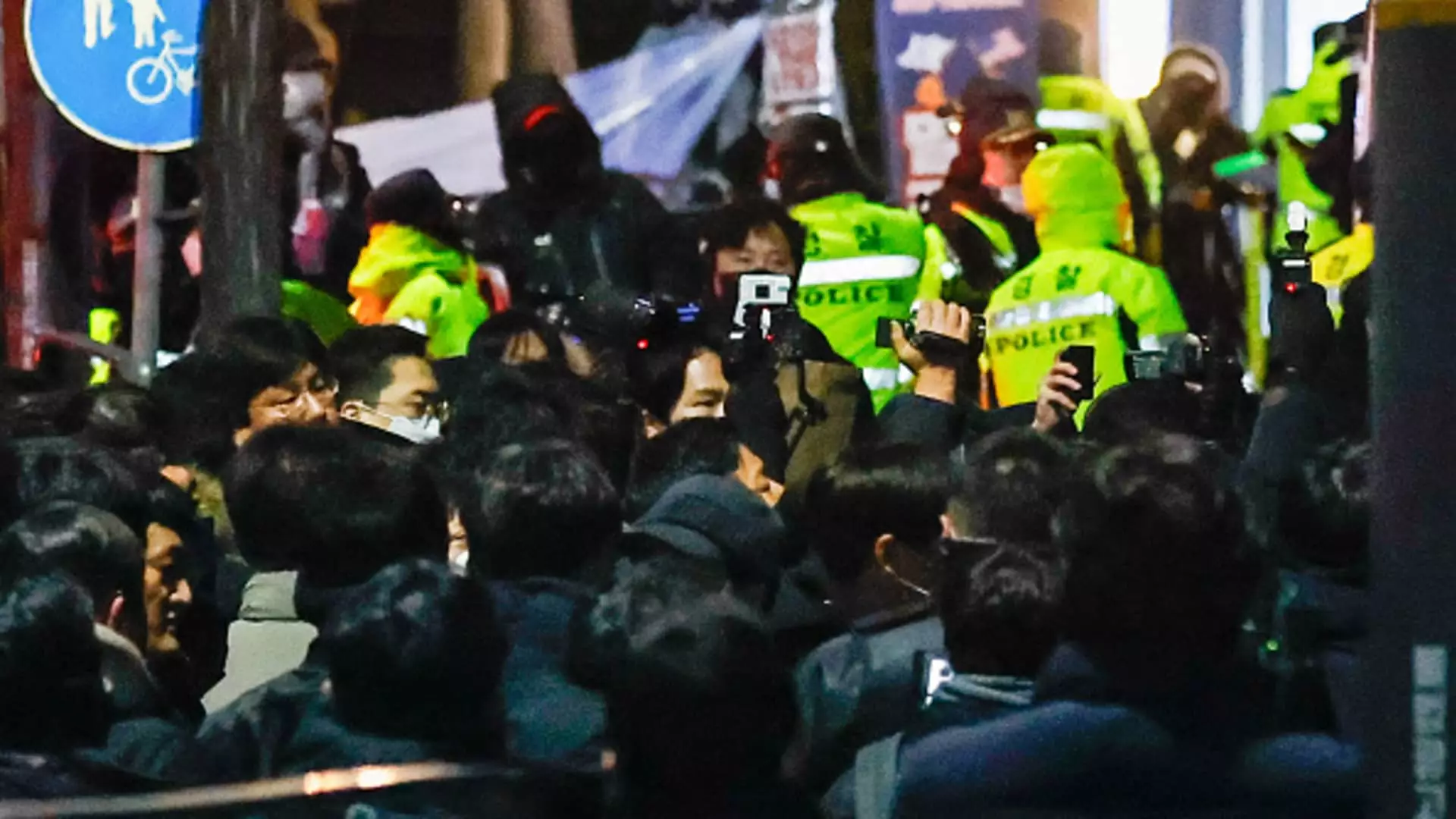In a historic turn of events, South Korean President Yoon Suk Yeol became the first serving leader in the nation to be arrested by the Corruption Investigation Office for High Ranking Officials. This arrest comes amid a whirlwind of political turmoil and legal challenges that have captured national attention. The attempt to detain Yoon is particularly significant considering it is the second such initiative after the initial effort on January 3 was thwarted by agents from the Presidential Security Service, demonstrating both the gravity of the situation and the lengths to which state security will go to protect the president.
The charges against President Yoon carry severe implications, notably allegations of insurrection linked to his controversial declaration of martial law. This declaration, which has not been seen in South Korea for over four decades, set off a crisis that culminated in his impeachment on December 14. Lawmakers quickly voted against the martial law declaration, indicating a robust opposition within the political establishment. The gravity of the charges—insurrection is punishable by death—underscores the precarious nature of presidential immunity. As the Constitutional Court began its impeachment trial, the stakes for Yoon have only escalated.
Despite the dramatic developments, South Korean financial markets reacted with caution. The Kospi index saw a minor uptick of 0.21%, while the Kosdaq index experienced a slight dip of 0.44%. The South Korean won weakened against the US dollar, trading at approximately 1,459.75. The muted market response could indicate both a degree of investor uncertainty and a possible disconnect between political turmoil and economic fundamentals, suggesting that, for now, investors may be biding their time amid the chaos.
In response to the arrest warrant, Yoon conveyed a message that resonated with a sense of urgency and defiance. In a pre-recorded broadcast, he asserted that “the law of the country has collapsed,” labeling the CIO’s investigation as “illegal.” His intention to appear before the CIO aims to avoid “unpleasant bloodshed,” reflecting a leader who is keenly aware of the potential for unrest. This rhetoric not only emphasizes the president’s troubled resolve but also illustrates the deepening divides within South Korean society.
As the political landscape shifts, the ramifications of Yoon’s potential removal from office extend beyond the immediate scope of his presidency. The events surrounding his arrest have ignited discussions about the judicial system’s integrity, political accountability, and the broader implications for democratic governance in South Korea. With investigations ongoing and Yoon’s impeachment trial set to continue, the nation watches closely, aware that the outcome will define its political trajectory for years to come. The unprecedented nature of these events may serve as a crucial turning point in South Korea’s ongoing struggle for democratic integrity and governance accountability.


Leave a Reply